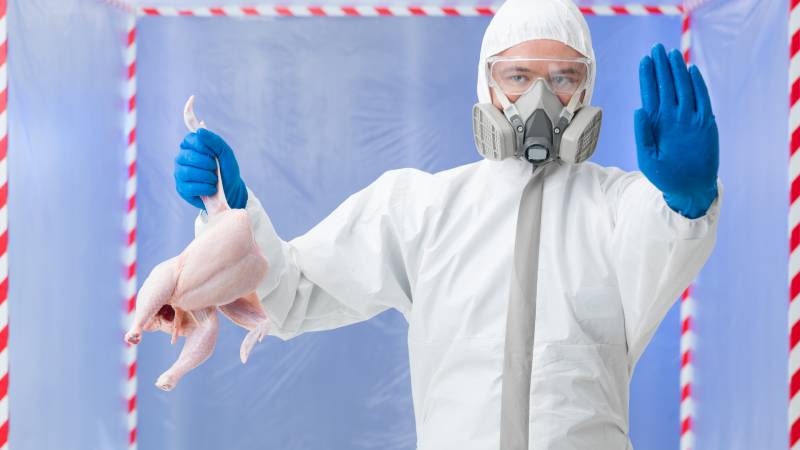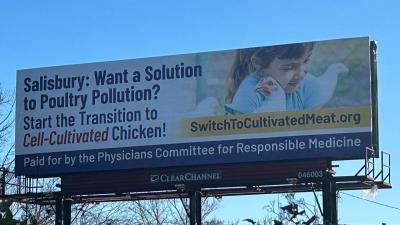USDA Refuses To Protect Consumers From Fecal Contamination of Chicken and Other Meat
WASHINGTON—The Physicians Committee for Responsible Medicine—a nonprofit with 12,000 doctor members—sued the U.S. Department of Agriculture in April for ignoring concerns over fecal contamination of chicken and other meat. On Friday, USDA announced that it would take no action to address these concerns.
USDA conceded that bacteria commonly found in feces are routinely present on meat and chicken products. USDA also agreed that the “presence of E. coli and other enteric bacteria on meat or poultry products indicates that the bacteria is likely associated with the intestinal tract.” Nevertheless, USDA claimed that products containing these bacteria are not actually contaminated because, USDA argued, “fecal contamination is a visible defect” only.
“Since the agency is dodging its responsibility, consumers should protect themselves from fecal contamination by avoiding chicken and other meat products,” says Deborah Dubow Press, Esq., associate general counsel for Physicians Committee.
Although USDA implements a “zero tolerance” policy for fecal contamination, this policy applies only to visible fecal contamination. Chicken products pass inspection as long as feces are not visible to the naked eye. However, inspection lines move at rates up to 175 birds per minute—about 3 carcasses per second—making visible detection of feces nearly impossible.
In 2011, the Physicians Committee conducted a study that tested 120 chicken products sold by 15 grocery store chains in 10 U.S. cities for the presence of fecal bacteria. Forty-eight percent of the products tested positive.
The lawsuit, currently pending in the United States District Court for the District of Columbia, quotes a federal inspector who said, “We often see birds going down the line with intestines still attached, which are full of fecal contamination. If there is no fecal contamination on the bird’s skin, however, we can do nothing to stop that bird from going down that line. It is more than reasonable to assume that once the bird gets into the chill tank (a large vat of cold water), that contamination will enter the water and contaminate all of the other carcasses in the chiller. That’s why it is sometimes called ‘fecal soup.’”
“Poultry Slaughter Procedures,” a USDA training video obtained by the Physicians Committee through a Freedom of Information Act request made in 2013, revealed that the chicken slaughtering process ends with carcasses soaking in this “fecal soup” for up to one hour before being packaged for consumers.
The lawsuit argues that the public deserves fair notice that food products deemed “wholesome” by USDA would be deemed disgusting by the average consumer and adulterated under any reasonable reading of federal law. The lawsuit also claims that USDA violated the Freedom of Information Act by failing to respond to a 2017 request for documentation of fecal contamination rates detected in poultry slaughter plants and other data related to poultry inspection and slaughter line speed.
Media Contact
Jeanne Stuart McVey
202-527-7316
jmcvey[at]pcrm.org
Founded in 1985, the Physicians Committee for Responsible Medicine is a nonprofit organization that promotes preventive medicine, conducts clinical research, and encourages higher standards for ethics and effectiveness in education and research.







